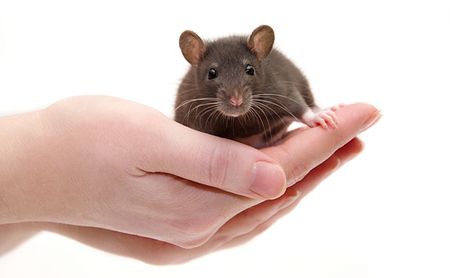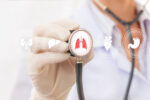R-107 Stops PAH Progression, Reverses Hypertension in Rats

Olena Kurashova/Shutterstock
An investigational therapy called R-107 completely stopped the progression of pulmonary arterial hypertension (PAH) in a rat model and may become the first medicine to reverse the increasing blood pressure characteristic of the disease, a study suggested.
Now, R-107’s developer, Claritas Pharmaceuticals, plans to begin clinical testing in humans.
“The data from this study are unprecedented in the scientific literature, and suggest that R-107 is a potentially revolutionary new treatment for PAH,” Claritas said in a press release that called the results of the rat research “exceptionally positive data.”
The company, previously known as Kalytera Therapeutics, has acquired a license to develop R-107 from the Salzman Group and is launching in-human testing.
“We will initiate the Phase 1 clinical study of R-107 at CMAX in Adelaide, Australia by next month and expect to complete the study by [the fourth quarter of] this year,” said Robert Farrell, Claritas’ president and CEO, who called CMAX “one of Australia’s largest and most experienced clinical trial centers.”
Following that trial, the company will investigate R-107 as a therapy for people with severe COVID-19 who develop PAH.
“We will then initiate a Phase 2a clinical study of R-107 in hospitalized patients with COVID-19 related PAH early next year, which we expect to complete during [the third quarter of] next year,” Farrell said.
Expanding upon previously reported results that showed a durable restoration of healthy blood pressure, Claritas described the protection afforded by R-107 — a liquid form of nitric oxide — against PAH progression as “total.” Claritas noted that the therapy stopped all further damage to rats’ blood vessels in the preclinical study.
Importantly, while existing PAH medications ease symptoms, they do not stop the disorder’s progressive damage.
According to the company, R-107 also provided the animals with “immediate and near total relief” of severe symptoms.
The rats’ blood pressure consistently fell within minutes of being injected with R-107, and remained in that state for a full 24 hours, implying the potential for long-lasting relief.
By comparison, the approved therapies Revatio (sildenafil) and Tracleer (bosentan) provide approximately half of R-107’s observed potency over shorter lengths of time in the same rat model.
Rats receiving a two-week pulse of R-107 experienced a 75% reduction of their elevated blood pressure, which lasted for days after treatment ended.
“Such results are, to the best of our knowledge, unprecedented in the scientific literature,” the company stated. “Successful translation of these results in rodents to a clinical population would herald that patients with severe PAH could obtain a cure of existing well-established lethal disease.”
These findings suggest that R-107 has the potential to become the first disease-modifying PAH therapy, meaning that it might transform PAH into a chronic treatable condition that can be stabilized over the long term.
Toxicology and safety studies of R-107 have so far indicated that the therapy is extremely well-tolerated, according to Claritas, suggesting that it potentially could be safer than existing PAH treatments.
Nitric oxide, the active ingredient in R-107, is a naturally occurring gas found in the body that helps fight off viruses. It works as a vasodilator, widening blood vessels to allow blood to flow through them under less pressure.
Claritas initially acquired a license to develop the therapy as treatment of SARS-CoV-2, the virus that causes COVID-19, as well as other viral infections.
“Patients with severe COVID-19 exhibit a high prevalence of pulmonary vascular disease and the formation of numerous clots that obstruct blood flow as it courses through the lung,” Farrell said.
“As the blood vessels in the lung are progressively blocked by clots and become engorged with blood, COVID-19 infection may produce severe PAH, causing acute stress and ballooning of the right side of the heart. In severe COVID-19 infection, this stress on the right side of the heart may become unsupportable and cardiac failure and death ensue,” he added.
Preclinical tests of R-107 in a COVID-19 rat model showed similar results to those seen in PAH. It has also protected the right side of the heart from PAH and cardiac failure in a sheep model of severe lung infection.
“Based on the exceptionally positive results that we have observed in both rat and sheep models of lung infection and PAH,” said Farrell, “we expect to see a quick and dramatic reduction in the symptoms of PAH in these patients with COVID-19 pneumonia.”









